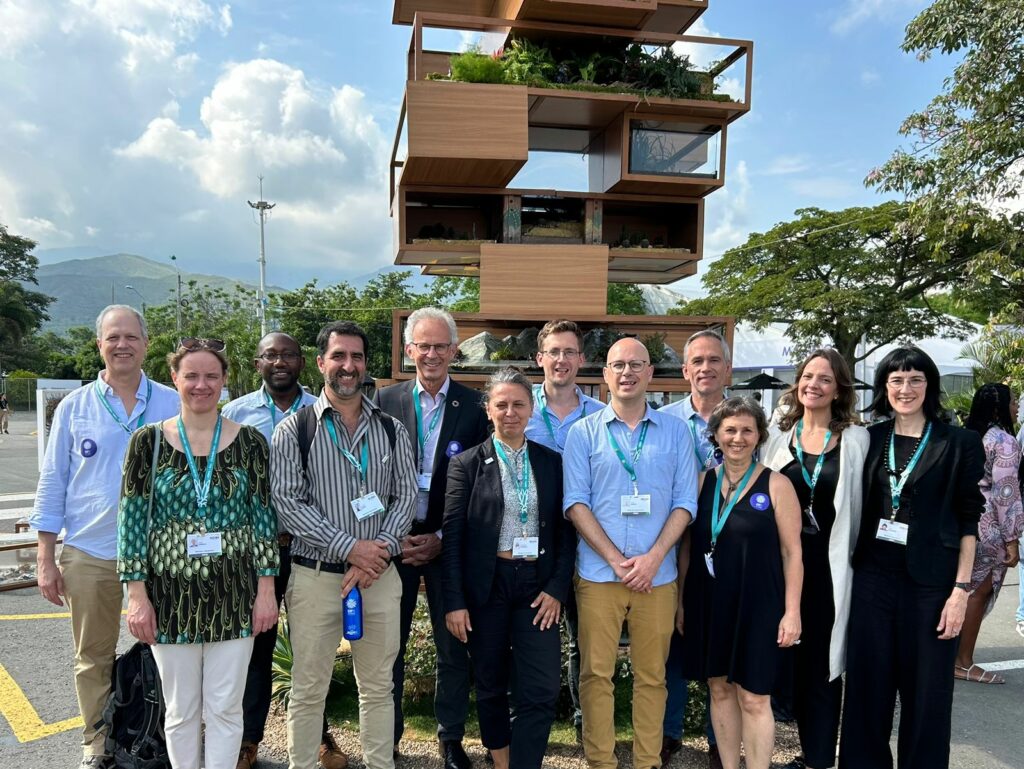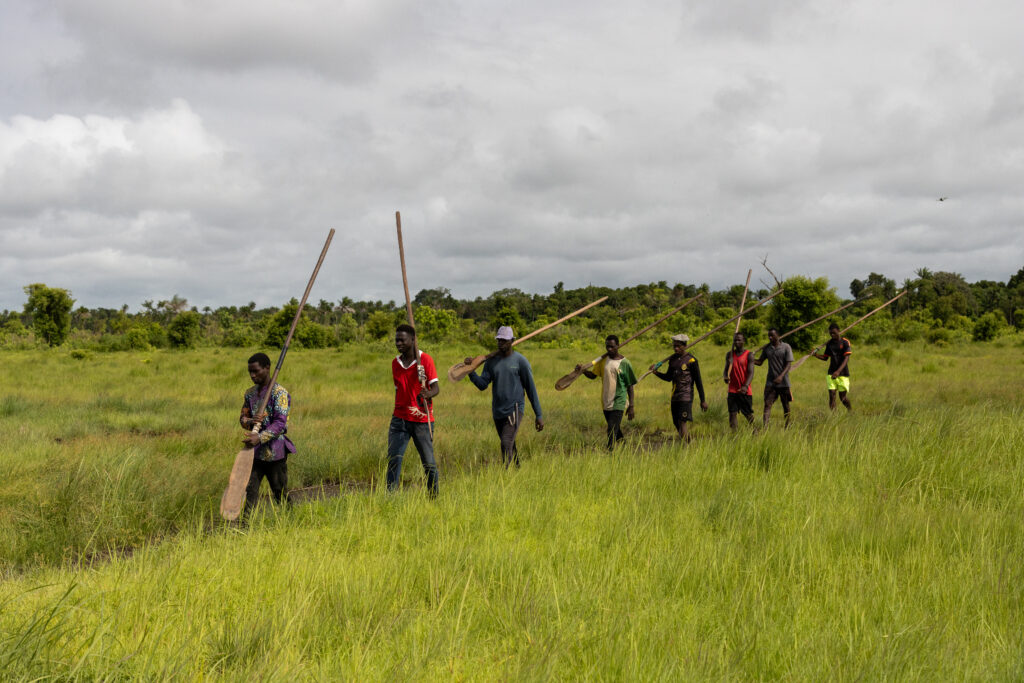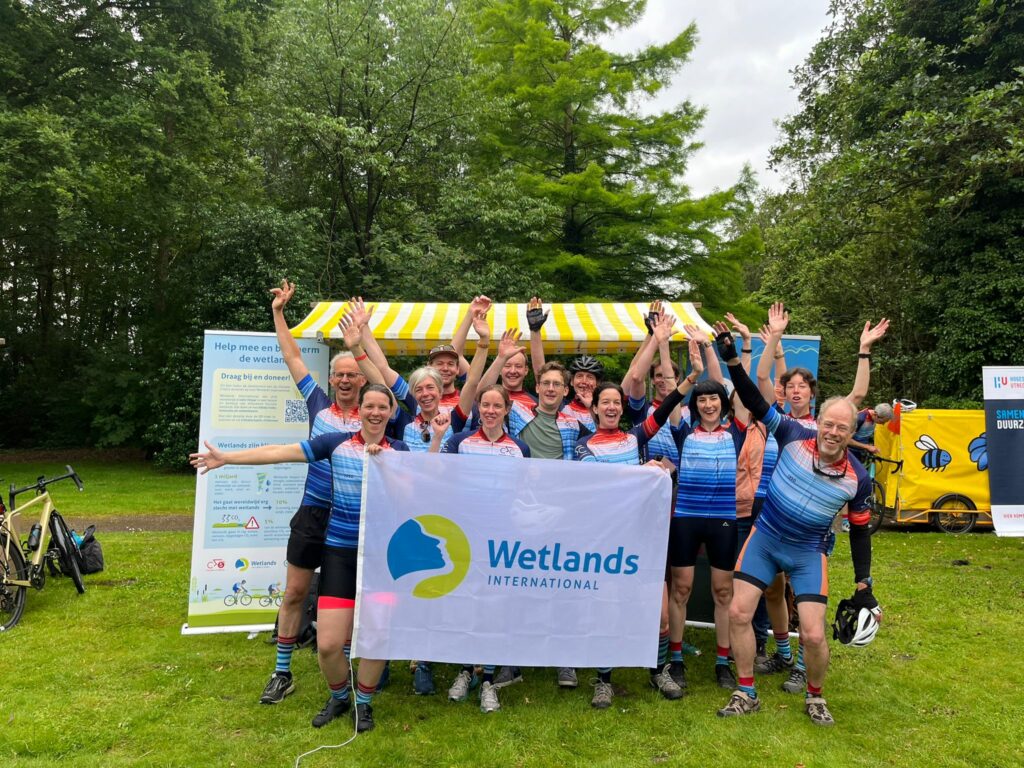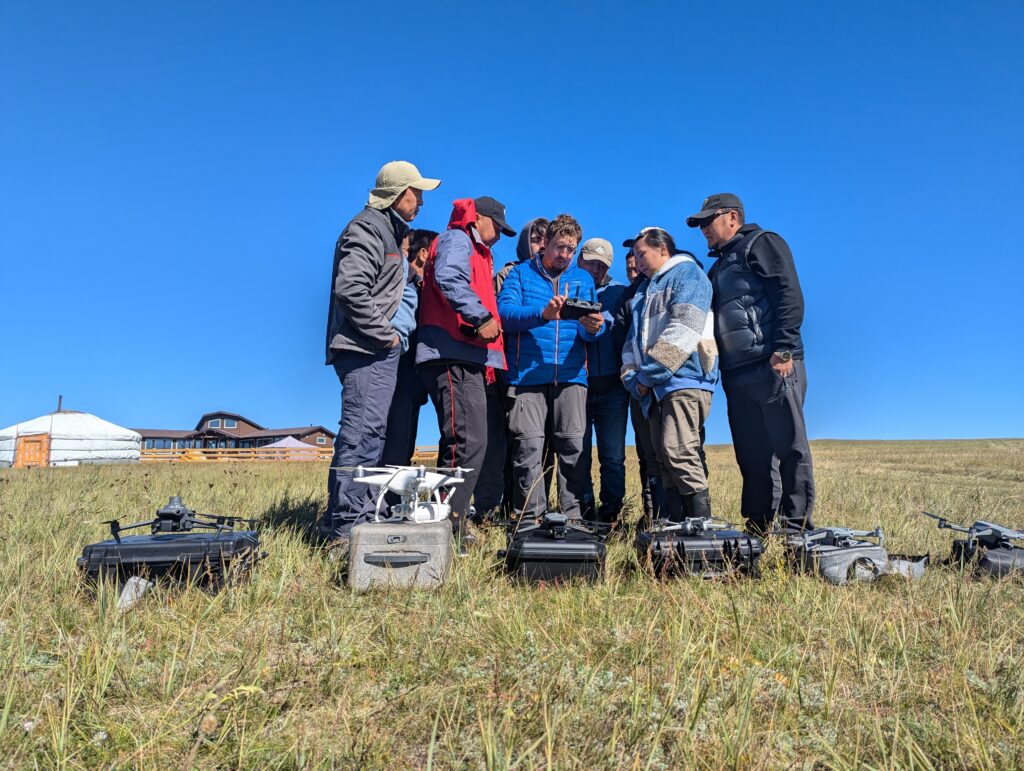
2024 highlights
In 2024, Wetlands International continued to advance global wetland conservation and restoration initiatives while advocating for their role in addressing global environmental challenges such as biodiversity loss, the water crisis, and climate change.
Wetlands are biodiversity havens, supporting 40% of all plants and animal species, including several endemic and endangered ones.
With the Convention on Wetlands and other partners, we launched guidance to help countries include wetlands in their National Biodiversity Strategy and Action Plans (NBSAPs) and a specific brief on the inclusion of mangroves in NBSAPs using Global Mangrove Watch.
At the UN Biodiversity COP16 in Cali, Colombia, we advocated for the critical role of wetlands in meeting the goals and targets of the Global Biodiversity Framework. We co-organised and spoke at many side events, including the only official side event on peatlands, where we stressed the need to strengthen national and international efforts to conserve and restore peatlands and called for a Peatland Breakthrough. We were glad to see an overall strong focus on water and wetlands, illustrating an increased recognition of the critical importance of wetland ecosystems for the Global Biodiversity Framework’s successful implementation.

Critically, wetlands are indispensable habitats for migratory and waterbird species. In 2024, we launched guidance on the restoration, creation and management of salt marshes and tidal flats. We also continued to manage the Waterbird Fund that supports long-term monitoring across flyways, the Waterbird Populations Portal that provides current and historic estimates, trends and 1% thresholds for over 800 waterbird species and 2300 biogeographic populations worldwide and coordinated the International Waterbird Census. Through our role on the Scientific and Technical Review Panel of the Convention on Wetlands, we also contributed to the development of proposals for a new Waterbird Estimates Partnership. Developed in collaboration with flyways partnerships, other partners, experts and government representatives, this will provide urgently needed up-to-date estimates of waterbird populations as well as sustainable long-term approaches, essential for the designation and management of Ramsar wetlands sites of international importance and for the delivery of other multilateral environmental agreements.
Wetlands like rivers, lakes and peatlands supply nearly all of the world’s freshwater and play a crucial role in water purification, storage, flood control, and groundwater recharge.
Our participation at World Water Week raised awareness of projects and initiatives like Source to Sea, Wetlands 4 Resilience, and the Water, Peace and Security Partnership.
Wetlands International is a founding partner of the Freshwater Challenge – a country-led initiative that aims to support, integrate and accelerate the restoration of 300,000 km of degraded rivers and 350 million hectares of degraded wetlands by 2030, as well as conserve intact freshwater ecosystems. We welcomed Panama as the newest country to join the Freshwater Challenge at CBD COP16. This was followed, barely a month later, by Kazakhstan and Australia joining the Freshwater Challenge (bringing the total number of members up to 50) during the One Water Summit on the sidelines of UNCCD COP16, alongside a major funding boost of US$ 5 million from the Global Environment Facility (GEF).
Wetlands are nature-based solutions for climate mitigation and adaptation. They capture and store more carbon than any other terrestrial ecosystem and protect us from storms, floods, sea level rise, and droughts.
At UNFCCC COP29, we advocated for the inclusion of wetlands in countries’ Nationally Determined Contributions (NDCs). To help practitioners, along with partners we launched the Guide for Including Nature in NDCs, developed a brief on the inclusion of mangroves in NDCs as well as the Best Practice Guidelines for Mangrove Restoration. Additionally, we contributed to the State of the World’s Mangroves report which provides a comprehensive assessment of the latest scientific advancements and policy efforts to protect these valuable ecosystems. We enabled the endorsement of the Mangrove Breakthrough from Guinea Bissau and the Philippines. We have now leveraged support from 31 governments, and a formal partnership between the Mangrove Alliance for Climate and the Mangrove Breakthrough which has 23 country members. We continued to advocate for a move beyond mass monoculture planting towards ecological mangrove restoration, closely involving local communities and other stakeholders including in places like Indonesia. We also hosted an official side event, together with other partners, showcasing action on peatlands in countries like Malaysia, Indonesia, and Germany, and emphasized the need to scale up those efforts. The event also included the launch of a Global Peatland Hotspot Atlas. The importance of collective action to enhance the role of peatlands in climate initiatives was underscored by the announcement of current efforts towards a Peatland Breakthrough by UNFCCC COP 30.

In Mongolia and Peru, we kicked off peatland restoration projects that will contribute to both climate adaptation as well as the creation of sustainable livelihoods.
Locally, at Wetlands International’s home base in the Netherlands, we were honoured to be the recipients of over EUR 120,000 raised through Cycling 4 Climate and Running 4 Climate where over 2500 people ran and/or cycled for wetland action.

Alongside partners, we launched “The 4 Returns Framework in Practice: A Guidebook for Holistic Landscape Restoration”, that captures over a decade of practical experience in restoring large, degraded landscapes, including wetlands; Investing in Peatlands, a comprehensive guide for nature-focused investors seeking peatland opportunities; and Landscape GHG Accounting Guidance, a publication on addressing the complexity associated with developing carbon projects at a landscape scale, a major barrier to investment and achievement of holistic impact.
Upscaling wetland conservation and restoration is imperative to a net-zero emissions, nature-positive and equitable world.
We are looking forward to advancing our work in 2025 and thank our partners, members, and supporters for an impactful 2024!

